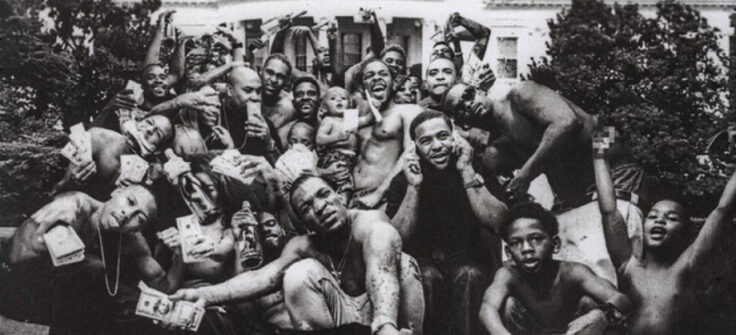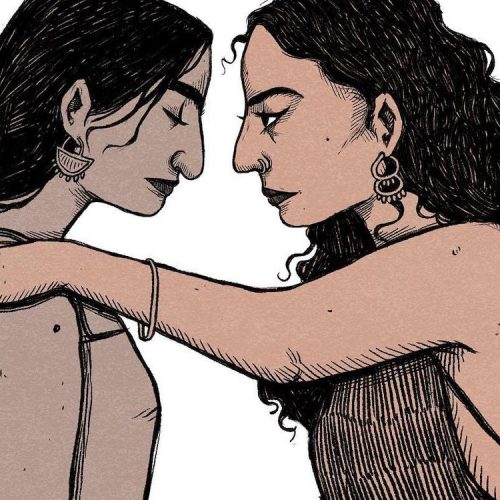Do you use the word abid?
More specifically, have you used the word abid to refer to person(s) of a darker hue. What about zinji? Do those words cut the tongue like knives, or do they pour out of the mouth naturally? Do these seem like relatively convenient and benign descriptors for the more melanated amongst you? If so, I recommend you never say the N-word.
I know this might feel unreasonable. Especially for those who say phrases like, “we had nothing to do with slavery,” or “if black people don’t want the word used, don’t put it in music.” However, I beg you to push aside your disingenuous positions for a moment to consider that perhaps you might be a racist.
You may think that’s a presumptuous statement, lest I remind you that the remnants of the Arab slave trade are alive in countries still benefitting from it. As you read this, slave auctions are active across Libya; landed-classes are still inheriting human assets in Mauritania; another Egyptian official referred to sub-Saharan Africans as “dogs and slaves” at a UN assembly; and movements, such as Morocco’s ‘My Name is Not Negro’ (ma smitish ‘azzi) campaign, are building coalitions to battle persistent anti-blackness.
Also, holding millions of marginalized people as monolithically responsible for the actions of a few artists is quite literally racist in itself. Yet, while black music does not represent the entirety of the black experience, it does provide a platform for varying and honest black narratives. This requires the use of language that defines those narratives, and such language includes the N-word.
The N-word has been used to dehumanize Black Americans long-before the country’s revolutionary war. The N-word has also historically lent itself to be the dividing line of privilege. The contortionist uses of that word, by Black Americans, as a sort of reclamation and refusal to submit to its associations are also part of that history. To not speak on it in black art would be an act of erasure.
It’s also important to note that you are not absolved from racism simply because you have a “black friend,” or a random black great-aunt that no one talks about.
These non-impressive facts don’t absolve you from racism, because racism is fundamentally about devaluing humanity. While it is true that expressing hate towards an entire group of humans is a way to manifest racist sentiments, racism, or the belief in racial hierarchies, more commonly presents itself through the hindrance of one’s ability to live life as a nuanced and complex being.
It is usually based on an individual’s possession of some immutable physical quality. It is this physical quality (skin colour) that gives reason to refuse them marriage into your family, or a promotion to management. It also provides reason as to why a person may seem better suited for domestic and subservient occupations. They can entertain you by way of music and athletics but are incapable of any serious intellectual endeavours.
These beliefs have manifestations more threatening to the body, than the malignant words of some supremacist. For Black Americans these manifestations look like red-lining, predatory lending, police brutality, the war on drugs, mass incarceration, de facto segregation, the school to prison pipeline, and respectability politics. For Black Americans it looks like the words “‘thug’, ‘hoodlum,’ . . . ‘nigger.’” If you fail to see how these tropes are connected to years of human bondage, that’s even more of a reason why you should refrain from using the N-word.
Nigger is to Black Americans, what zinji and abid is to dark-skinned people living in Arabic speaking countries. The only difference is that no country in the Arab world has yet to witness a civil rights movement, or reclamation of black beauty, art, intellect, and overall contributions in their respective societies.
The first time I visited Egypt, I was told the meaning of zinji. I was then, on numerous occasions, the target of the term in a purposefully ironic exchange of the word nigger. They are synonyms.
Every person using those words fills their mouths with the blood of black forbears who were tortured because of it. The Arabic-speaking world does not have clean hands. Blacks, both Arab and non-Arab, were drowned in the hatred of words meant to lock them in to an inferior status.
Despite the disingenuous reminders of how “the Arab-slave trade did not only consume the beautifully melanated,” today the institution, as it had in yesteryears, prefers to break the bones of black bodies.
The truth of this can be seen in the racist words of the beloved and famed Tunisian scholar Ibn Khaldun, who once proclaimed that, “[t]he only people who accept slavery are the [blacks], owing to their low degree of humanity and proximity to the animal stage. Other persons who accept the status of slave do so as a means of attaining high rank, or power, or wealth.”
It’s ironic that instead of fighting entrenched anti-blackness, Arab youths rather fight to openly use a by-product of entrenched anti-blackness, indiscriminately.









